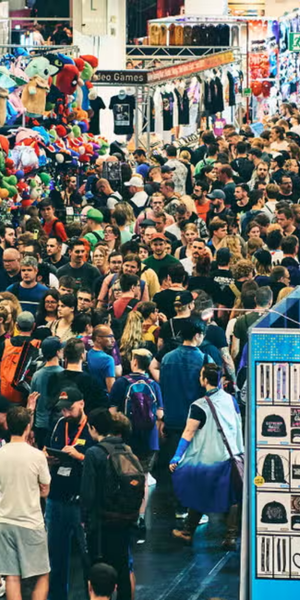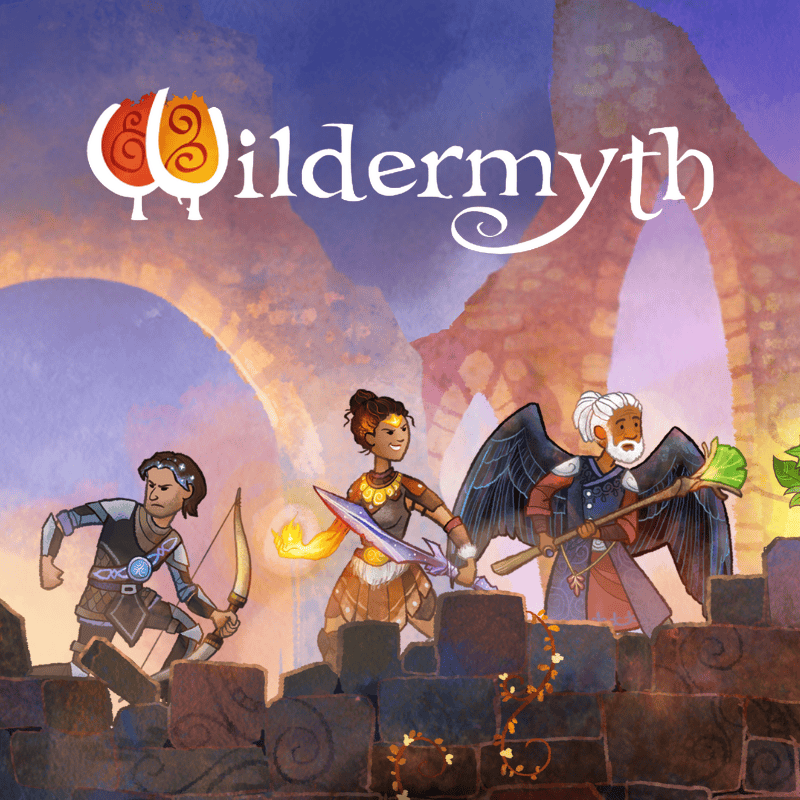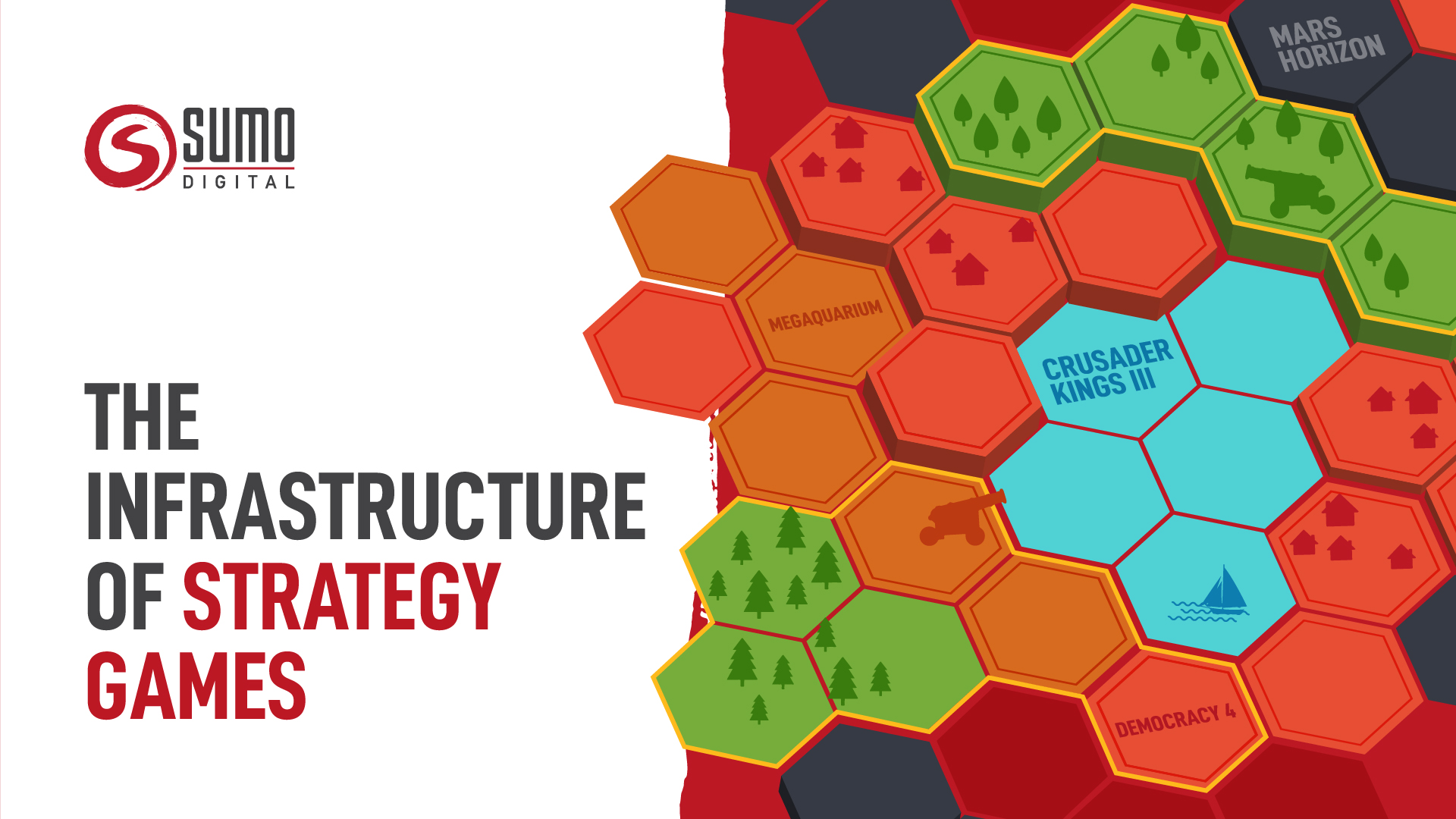In the last 18 months, we’ve seen an abundance of gaming IPs making their way to TV and cinema screens, and being met with high-praise from critics, fans of the franchise and non-gamers alike. Historically, game-to-film adaptations have largely been dubbed as ‘popcorn movies’ which under-perform both in ticket sales and in fan expectations… that is, until recently.
Recent celebrated titles including The Last of Us, Fallout, Super Mario Bros and Five Nights at Freddy’s are redefining the world of gaming IP adaptations and are inspiring fans to revisit the IPs they once loved, bringing in new audiences to the world of gaming and putting the games industry on the global stage for pop culture and entertainment. Because of this, entertainment giants are recognising the power of a strong narrative, captivating characters and immersive environments, and are on the hunt now more than ever to find new stories to bring to the big screen (just ask our General Counsel, Tim, who has been dealing with a flurry of requests for our recent title, Still Wakes the Deep).
Here, Sumo Group Licensing Director Benjamin Godwin gets into the details of gaming adaptations, the world of transmedia licensing and takes a deep dive into how adapting your game to another media can create a whole new audience.
THE RISE OF LICENSING | WHY WE’RE SEEING GAMES GO HOLLYWOOD
Games have always been the underdog when it comes to entertainment and media, and for the longest time, were even considered an inferior art form when compared to behemoth industries like cinema, music and television. While these industries were made to be savoured, revisited and cherished by audiences, games were perceived to be made to be played, completed and dropped.
But as the cinematic, storytelling and immersion capabilities of gaming grew, games started to see themselves being taken seriously in the world of entertainment, and began to blur the lines between games, art, symphony and cinema. These detailed and developed gaming worlds provide the perfect base for adaptations to the big screen, as they’re packed with rich stories, deep and complex characters, and a built-in fan-base ready to show their love and appreciate for their favourite IP.
This, combined with a new generation of filmmakers, producers and directors who cherish fond memories of playing games their entire lives, and truly understand what it is to love an IP and the value of it, are the reasons we’re seeing box-office-busting releases that originate in the world of gaming.
And this process is cyclical, as games are adapted into other media, the audiences for those games grow which expands the opportunities to license in other areas.
So why now? In the rise of streaming platforms, there’s an increased need for more regular, high-quality content and entertainment giants are happy to fund projects which have relevancy, virality and ready-made audiences. In addition, the 2023 Writers Guild of America strike not only saw production stop for programming in the pipeline, but impacted the way studios source their stories, with the mindset moving away from a traditional ‘write and produce movie’ approach, to become ‘where can we find stories that are ready to go?’.
As these adaptations continue to perform well in ratings and box office figures, it’s absolutely certain we will continue to see gaming IP transformed into new media, and that the games industry will feel the benefit as these adaptations can re-spark interest in IPs that have laid dormant.
Take for example, The Last of Us [search volumes can be seen below]. We’ll explore the cultural impact of HBO’s adaptation later in this article, but looking at its popularity using Google Trends we’re able to see that when the franchise began in 2013 – it received a high volume of search traffic… but that number more than doubles to reach the ultimate peak it experienced in February of 2023 when the series released. Why? Because it became popular in the mainstream – suddenly everyone’s ‘non-gamer’ friends, family members and colleagues were all eager to discuss the latest developments for Joel and Ellie.
 [Google Search Volumes for ‘The Last of Us’ between January 2013 to December 2023. Identified are three key spikes of interest – with the all-time peak being when the series released on HBO in January of 2023]
[Google Search Volumes for ‘The Last of Us’ between January 2013 to December 2023. Identified are three key spikes of interest – with the all-time peak being when the series released on HBO in January of 2023]
But with great power visibility, comes great responsibility: and it’s no surprise to see IP-holders and developers gearing up for an influx of new players in response to their title heading for streaming or cinema. Immediately prior to the release of the Amazon Prime Fallout series in April, Bethesda announced that free updates for Fallout 4 would be coming to next-gen consoles and PC. This update included the introduction of Performance/Quality mode settings, 60 fps gameplay, stability improvements and widescreen/ultra-widescreen support, among others. This free update dropped just two weeks after the release of this TV adaptation, seemingly primed and ready to welcome hordes of new players to the Wasteland.
THE ADAPTATION EFFECT | DRIVING NEW PLAYERS TO YOUR GAME
In the days leading up to the Fallout series releasing in April, SteamDB showed that individual player counts for Fallout: New Vegas, Fallout 4 and Fallout 76 had all doubled. It’s not just a case of franchise fans swotting up on their Fallout facts, either, as the weekend after the show dropped saw the highest ever Steam player count for Fallout 76, which released almost four years ago on the platform, and Fallout 4 also jumped to the number one spot in Europe the week after the show premiered, with its sales increasing 7500% week-on-week. Additionally, GI.Biz reported that mobile spin-off title Fallout Shelter saw its daily revenue more than triple around the release period of the show, and the number of daily downloads rose 20% within 24 hours of the show’s debut.
 [Ella Purnell as vault-dweller out of water, Lucy, in Fallout. Image source: Prime Video]
[Ella Purnell as vault-dweller out of water, Lucy, in Fallout. Image source: Prime Video]
With players of the franchise hungry for the next chapter in the apocalyptic blockbuster which (allegedly) isn’t due to be released anytime soon: the series landed at exactly the right time. This expected gap between game releases is perhaps not unexpected, as games continue to grow in ambition and scale, and AAA developers always looking to utilise the most advanced technology and ways to play… it’s not surprising to see the talented teams at Bethesda wanting to ensure they’re at the forefront of the industry with their flagship franchise. What the release of the series does do is add more lore and story to the already rich cannon of the Fallout universe – which is not only great inspiration for players to return to the franchise, but also sparks intrigue for new players to dip their toes in.
Elsewhere, The Last of Us Part I saw an astronomical jump in sales following the release of the HBO adaptation in 2023 – increasing by 322% and landing it back in the top game charts at #32. 10 years on from the release of the original game, The Last Of Us – part in thanks to its supernova casting by casting director Victoria Thomas – became a household series. The timing of its release was perfection: a cliffhanger series released throughout January and February of 2023 kept us glued to our screens and made the weeks pass faster, and its stars catapulted this landmark franchise into the heart of popular culture. Suddenly, we were surrounded by memes from the show (which were shot-for-shot remakes of game footage) on social media, Pedro Pascal’s appearance on SNL becoming the tenth most-watched episode of the year and even seeing the franchise become the first-ever game to have its own house at Universal’s Halloween Horror nights in Florida, which saw over 1.5 million visitors throughout the 48-night run.
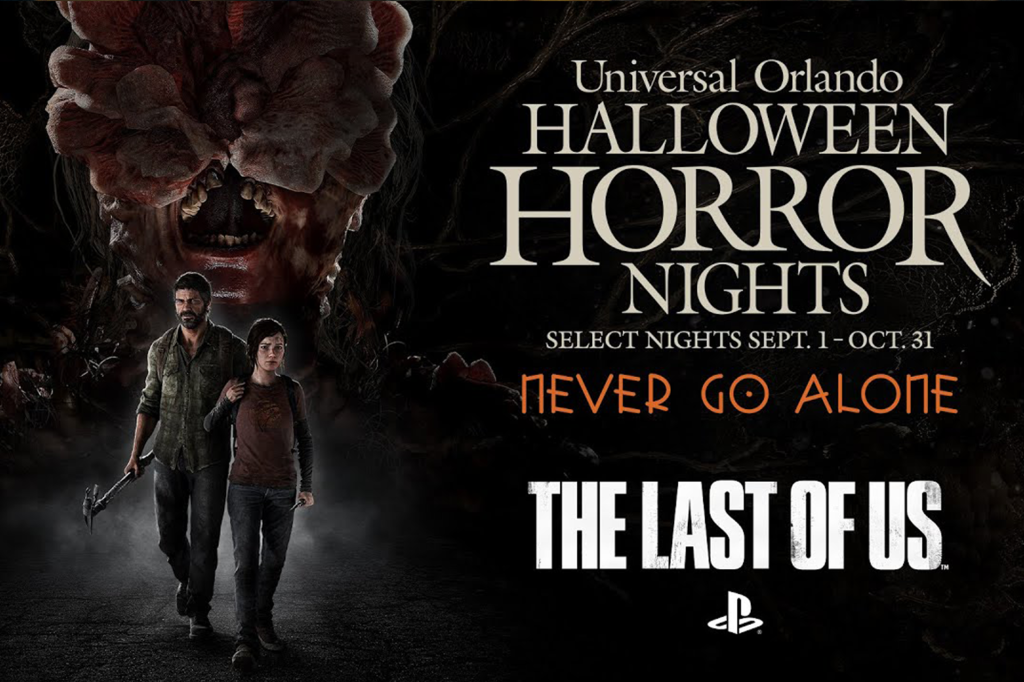 [The promotional poster for Universal’s Halloween Horror Nights featuring The Last of Us. Image source: Universal Orlando Resorts.]
[The promotional poster for Universal’s Halloween Horror Nights featuring The Last of Us. Image source: Universal Orlando Resorts.]
Last year also saw the big screen adaptations of gaming titles including Gran Turismo and Twisted Metal, and a duo of box office sensations (at vastly different ends of the age rating spectrum): The Super Mario Bros. Movie and Five Nights at Freddy’s – both of which broke ticket-sale records and continue to do big numbers on streaming platforms. These titles have also seen video game releases in the months following their big screen outings, with Nintendo launching Super Mario Bros. Wonder in October 2023, and Princess Peach: Showtime! earlier this year.
ON THE HORIZON | GAMES ON SCREEN AND IN THE REAL WORLD
It’s evident that the world is only just discovering the wealth of stories that the games industry has to offer, and I don’t anticipate that the game-to-TV/film adaptations will be slowing down any time soon. In fact, it was recently announced that Margot Robbie will be producing a new film based on The Sims – which not only sent the Sims Community into a combination of glee and concern, but has stirred up huge interest in the free-to-play title as keen players want to craft their dream narrative to be explored in the film.
Still to come this year: the Borderlands film cast was announced in February and fans of the franchise are eager to see how Cate Blanchett’s Lillith and her team of unlikely heroes will battle at the box office this summer. Also coming up in the next 12 months is the third instalment of the Sonic the Hedgehog series – which is aiming to be this year’s Christmas blockbuster with its December release – and early next year we can expect Jack Black to round-out his hattrick of game to screen performances (Super Mario Bros and Borderlands) in Minecraft: The Movie.
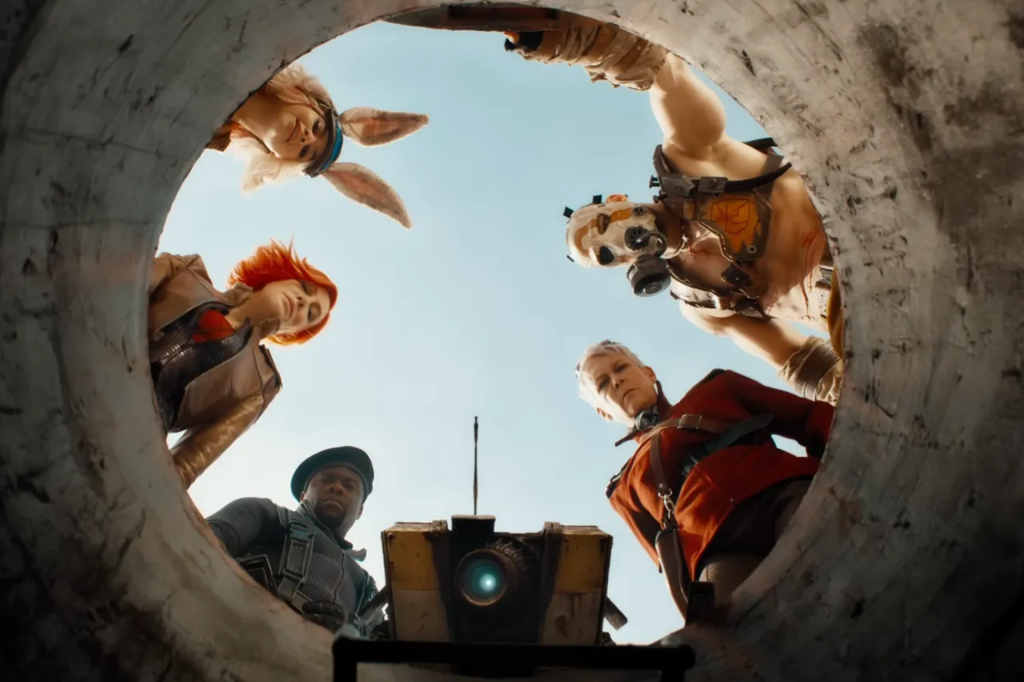 [An official promo image from the upcoming Borderlands movie. Image source: Lionsgate]
[An official promo image from the upcoming Borderlands movie. Image source: Lionsgate]
And that’s not all, as the games industry continues to grow into the world of licensing and seize opportunities for their IP to grow its presence, we’re seeing more games stepping off of the screen and into the real world. From concerts to coasters, to aquariums and agents, and solar events – 2024 is off to a great start for games blending into every day:
Hit the Track: One partnership that continues to thrive is that of Universal and Nintendo, as the two continue to bring its games to the real world. This collaboration is a great example of ‘permanent licensing’, which are partnerships that exist for long periods of time with a physical presence in the real world. This year, we’re going to see the next phase of this partnership with an expansion to the wildly popular Super Nintendo Land at Universal Studios Japan and the introduction of Donkey Kong Country. Complete with a brand-new, exclusive rollercoaster system which lets visitors ‘jump’ areas of broken track in minecarts – a great example of going above and beyond in the name of authenticity to the source material. Examples of these types of partnerships are rare but as games continue to expand beyond their berm, we can anticipate more to come in the future.
Tone Rangers: In April, we saw some of gaming’s most legendary composers – including former co-head of The Chinese Room, Jessica Curry – take their most notable work to the BBC Concert Orchestra. Presented by Sound of Gaming presenter Elle Osili-Wood, the event not only filled Nottingham’s Royal Concert Hall’s 2000+ seats, but was also broadcast to the masses on BBC Radio 3.
Cosy Gaming in the Real World: The end of March saw the closure of a 6+ month partnership between Nintendo of America and the Seattle Aquarium to create an Animal Crossing: New Horizon’s themed aquarium. During the event, guests could learn about undersea beauty in the company of their favourite Animal Crossing characters and get involved in stamp rallies (as seen in the game).
Renting Space: At the end of 2023, The Sims 4 celebrated the release of its For Rent expansion pack with a pop-up event in Central London. Utilising the games’ lore and characters, it created an in-universe experience which granted fans the chance to come face to face with the notorious Landgraab family and let their inner property mogul shine through.
An Eclipse Partner: The Look Up! event, created by NASA in partnership with the NEA, Microsoft and Epic Games for the Spring Solar Eclipse, aimed to educate players about solar eclipses, with a Twitch stream spotlighting the eclipse-themed Minecraft and Fortnite modes and exclusive events. The event included puzzles for players to solve, new areas to access by moving through different parts of the eclipse’s route, and live footage of the eclipse provided by NASA for players to watch while they play.
We’re entering into an exciting phase of licensing in the games industry, with developers and publishers keen to get their game seen by bigger audiences, and ‘non-gamers’ looking to discover the world’s that video games have to offer. These innovative and creative ways of taking an IP and expanding its horizons are set to continue, and I’m looking forward to seeing where games might pop up next!
Interested in licensing a Sumo Digital title? Please head over to the Contact Page to talk to us about bringing our IP to the big screen.
One thing about Sumo Digital? We love games! Need support in bringing your game vision to life, to create a seamless player experience or transport your game to new audiences? Find out how we can support you over on the Services Page.



 Vampire The Masquerade: Bloodlines 2
Vampire The Masquerade: Bloodlines 2 Exoborne
Exoborne Mars Horizon 2: The Search for Life
Mars Horizon 2: The Search for Life


